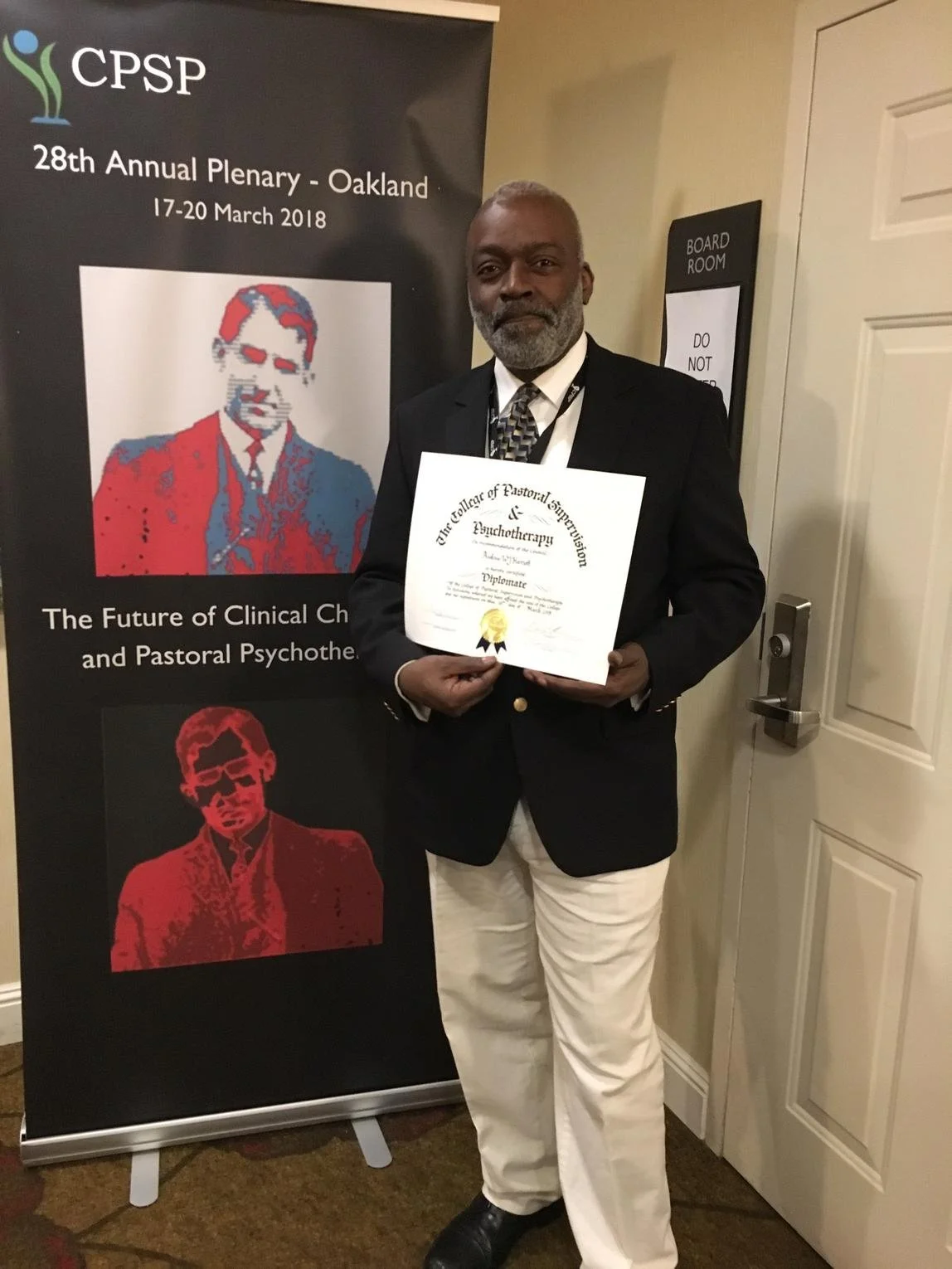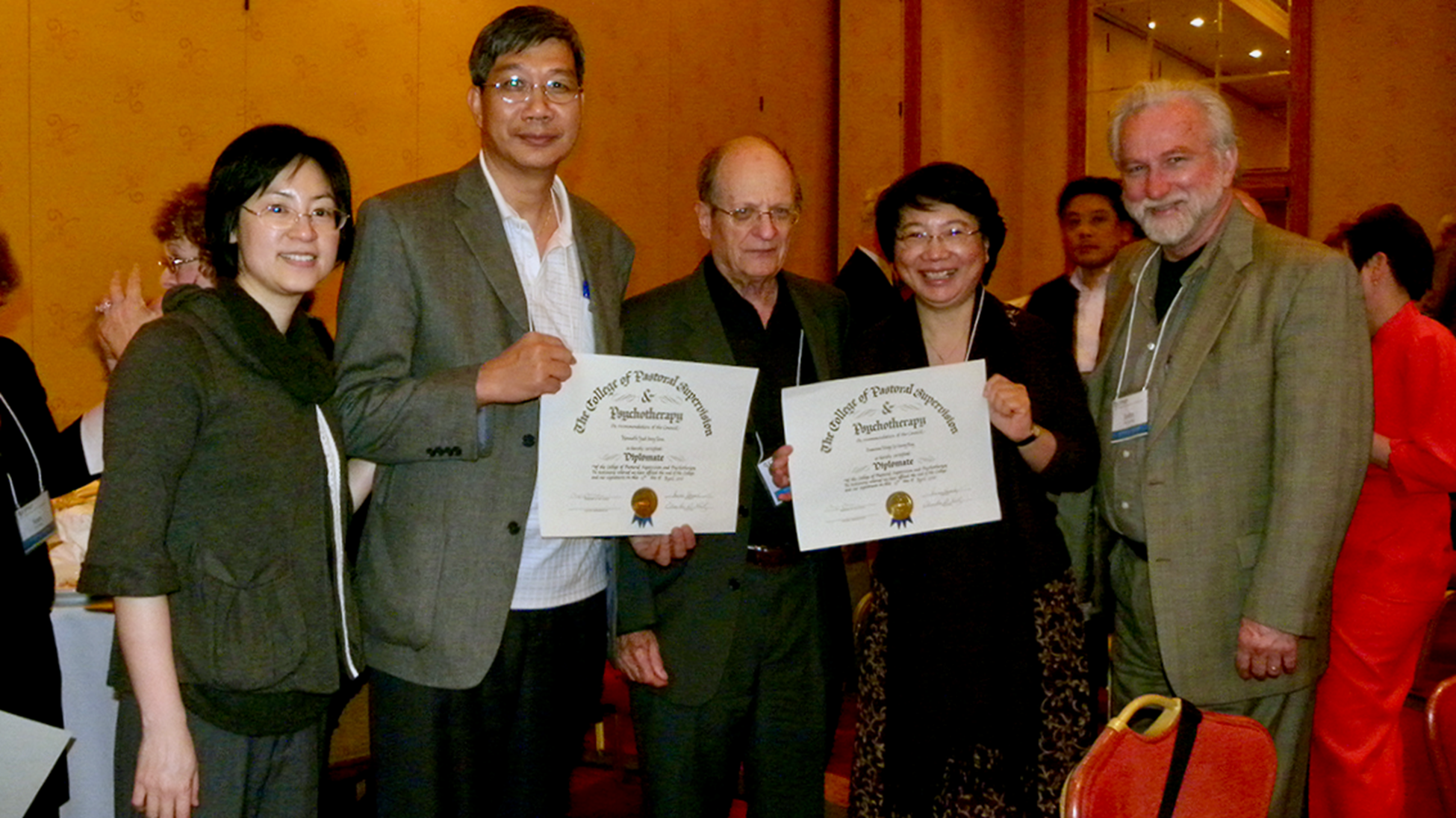
CERTIFICATION
CPSP offers Certifications to qualified individuals in the following areas:
Diplomate in Pastoral Supervision
Diplomate in Pastoral Psychotherapy
Pastoral Psychotherapist
Clinical Chaplain/Pastoral Counselor
Associate Clinical Chaplain/Pastoral Counselor
Hospice/ Palliative Care (sub-specialty)
Substance Use and Addiction (sub-specialty)
Clinically Trained Minister
At all levels, the certification process emphasizes the individual candidate's ability to demonstrate the professional and personal competence essential for clinical work involving interpersonal relationships. Completing formal requirements is always seen in relation to this ability, and certification is always a matter of judgment by professional peers who are delegated representatives of the Certified CPSP Community.
Why Certification?
Certification provides a pattern for self-directed, life-long learning, and a frame for continuous engagement with the clinical learning process within the Chapter.
Requirements for Certification in CPSP reference the learning that occurs in training, while clearly identifying the further development in personal and professional functioning that Certification represents – together, the highest standard in clinical chaplaincy and Clinical Pastoral Training.
The process of certification provides the candidate, and the Chapter, with a work task – a mission – that develops through mentoring, then consultation, and continues through the annual review of certifications, as part of the renewal process. The work task forms and informs the Chapter as a community of practice.
Certification includes the authorization to work, within the boundaries of one’s competence, according to the standards for each respective Certification.
Certification in supervisory roles represents, in addition, an affirmation of one’s character, as well as competence. Supervision is less a role and function (although both are true) than a discipline, a spiritual path.
Certification assures employers of the certified member’s clinical, theological, conceptual, and ethical competence – based, in the beginning of the relationship, on the reputation of CPSP.
Certification – and the progressive and continuing development that the process encourages, through mutual accountability for personal and professional functioning – equips Certified Members to give, through their words and work, a satisfying answer to the question, “Why…CPSP?”
Clinical Chaplain/Pastoral Counselor
Certification as Clinical Chaplain/Pastoral Counselor represents mastery of basic, broad-spectrum pastoral counseling; it does not signify competence to offer psychotherapy, but rather competence to offer supportive and crisis-oriented pastoral counseling, informed by in-depth clinical and cognitive understandings of the principles found in psychodynamic psychotherapy.
The Clinical Chaplain/Pastoral Counselor is equipped to distinguish the boundaries, authority, role and task that correspond to these respective roles. The chaplain role is defined by its context in the institution – religious, healthcare, military or civic – in which it is found; the pastoral counselor role is specific to a ministry setting, within a faith community.
Sub-specialty Certifications recognize the development of specialized areas, or sub-specialties within clinical chaplaincy, CPSP certifies members’ qualification for service in the clinical sub-specialties of Hospice and Palliative Care, and Substance Use and Addiction.
Pastoral Psychotherapist
“Psychotherapy” identifies the most advanced level of functioning in the mental health fields – psychiatry, psychology, social work, pastoral counseling, professional counseling, marriage and family counseling, or nursing.
The minister who practices pastoral psychotherapy demonstrates mastery of the insights and principles of both theology and the behavioral disciplines – specifically, the contributions of psychology. The Pastoral Psychotherapist serves as a treatment resource for persons who are troubled or disabled and as a guide and counselor to persons seeking greater wholeness and self-awareness. The training and certification of a Pastoral Psychotherapist prepares and authorizes the minister to function at this most advanced proficiency level of ministry.
Diplomate in Pastoral Supervision
Diplomates in Pastoral Supervision have integrated the disciplines of theology and the social/ behavioral sciences, both personally and in clinical practice, and are specialists in supervising programs of Clinical Pastoral Training.
Diplomate in Pastoral Psychotherapy
Supervisors in Pastoral Psychotherapy have integrated the disciplines of theology and the social/behavioral sciences, both personally and in clinical practice, and are specialists in supervising programs of Pastoral Psychotherapy.
Clinically Trained Minister
The Clinically Trained Minister has received basic clinical training in addition to their theological education, and in their pastoral work, integrate the insights of clinical training into their pastoral care, counseling, and assessment of parishioners or congregants.
FAQs about Certification
Why does CPSP offer certification?
CPSP is formed as a community of practice, a group of people who share a concern or a passion for something they do and learn how to do it better as they interact regularly.
What does certification by CPSP represent?
Certification affirms the candidate’s achievement of the clinical, theological, conceptual, and ethical competencies appropriate to each certification, as described in the Standards. Certification attests – to those beyond the candidate’s immediate peers, to employers, and to the public at large – the favorable judgment of the community on his/her competence and character as a clinician.
Must my Clinical Pastoral Training have been through a CPSP program, or may other training be accepted?
Having trained in a CPSP program is not always a requirement for Certification. The requirements for Certification are expressed in terms of competencies rather than credentials, units, or hours.
Why should I seek certification by CPSP?
CPSP certification validates the candidate’s engagement with and formation in the Boisen tradition – a psychodynamically informed, inductive approach to providing pastoral care.
What if I do not meet one of the published requirements for Certification but I have training or education I believe to be equivalent?
Requests for approval of an equivalency must be submitted for review/approval before seeking a Certification. Applications are reviewed by the Chapter, the Certification Committee, and the Executive Chapter, in turn, Standards, § 630). Allow time for your request for equivalency to be evaluated before committing to a Certification review panel date.
Where are certification review panels conducted and how often?
Beginning in May 2020, Certification review panels are conducted remotely instead of in person. Since review panels are no longer conducted in conjunction with regional or national CPSP events, opportunities to meet with a panel are projected four times yearly or as needed. Chapter Conveners will help guide this process.
Must I become a member to seek Certification by CPSP?
Membership in CPSP – confirmed by active participation in Chapter Life and commitment to The Covenant – is the foundation for Certification.
What if I already hold Certifications from other chaplaincy organizations?
Standards (§ 620) provide for Certification by reciprocity. Reciprocity – because of the very real differences underlying cognate groups’ conception of the certified roles – is not as simple as recognizing a seeming equivalency in nomenclature. Applications for Certification by reciprocity undergo a thorough review by one’s Chapter and the Certification Committee, but do not require meeting a Certification review panel.










